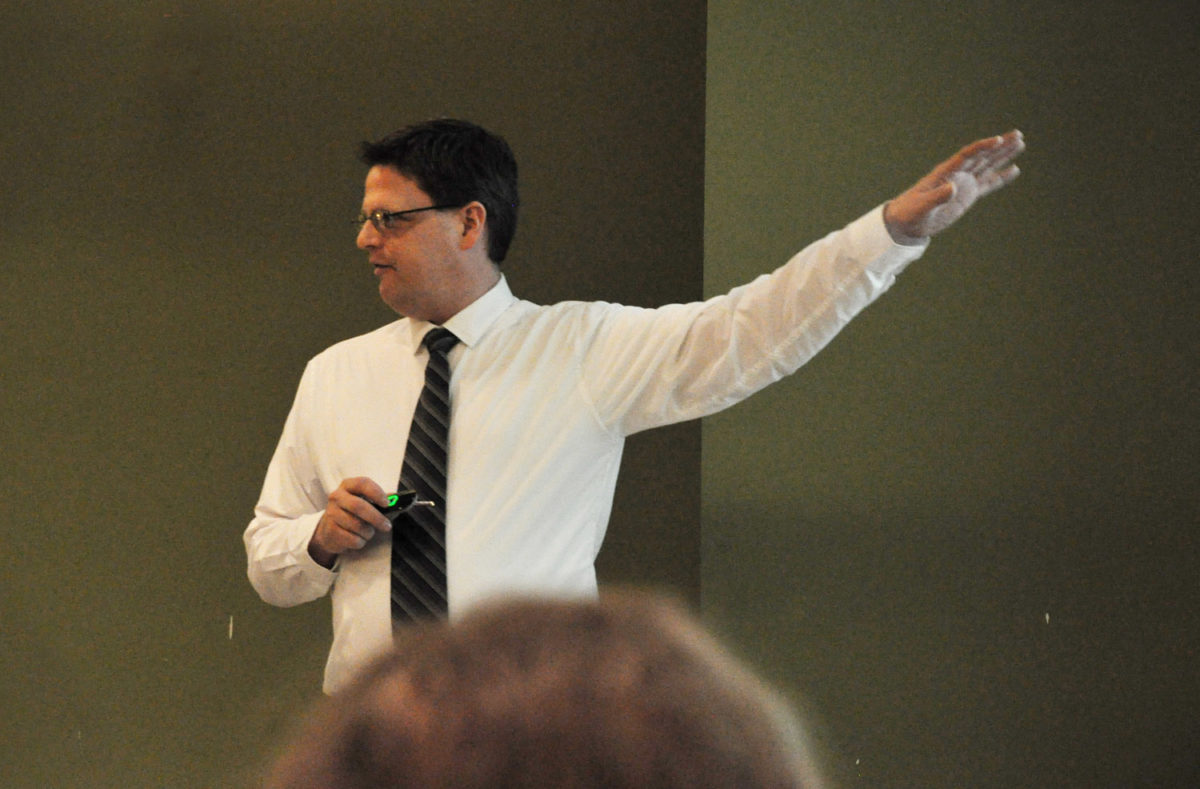
John Staples, president of STU and UNB’s LGBTQ support group Spectrum, had been part of the church his whole life. He was raised in a Christian home and led his Evangelical church’s musical team. In July 2003, at age 30, he was banned from participating in his church when his pastor learned he “had a problem.” Staples had known – and kept hidden – that he wasn’t heterosexual since he was eight years old.
“The Cross and the Closet” event was hosted by Spectrum Thursday in Brian Mulroney Hall to start a conversation about how Christianity and non-heterosexuality can exist in harmony.
Staples wanted to open dialogue since the story broke last September about a STU student Colin Briggs who was forbidden from volunteering with his church because of his sexual orientation. Staples said it was high time these matters were talked about.
With over 30 people in attendance, including members from the clergy and the LGBTQ community, Staples began by warning the night might become “volatile.”
“If we’re going to get along, one way or the other, we have to be respectful,” said Staples.
Staples read a letter he had written for himself shortly after the events in 2003 to the audience. His story had never been read in public before, and few people had seen it. He stood in front of the crowd in his white shirt and black tie, looking much like any other Christian speaker, and confessed his nervousness.
“My heart’s picked up. It’s kind of pounding,” he said quietly.
He spoke of his deep love of the church and God and how that love was so important in his life. He spent long hours in church playing music “to God and for God.” When he was asked into his pastor’s office one day, he dreaded what was inevitably coming.
Staples had been spotted spending time with LGBTQ friends. His pastor knew of the parties he attended and the people he was visiting. Staples felt betrayed by these accusations.
“I was shocked that their investigation in my life was so detailed.”
As this meeting went on, Staples felt more and more interrogated. Finally the pastor asked if he had a “problem.” Staples admitted that he did.
Staples paused before reading on. He turned from the audience to collect himself.
“‘I’ve been preparing, well, not preparing exactly, but expecting this day to come for quite some time,’ I said. ‘And I knew that when it came I was going to kill myself,’” Staples read.
His pastor responded, “We can’t help you.”
A year after this meeting, Staples stopped going to church. He felt betrayed by his pastor and by the members of the congregation that seemed to have spied on him. However, while going through this traumatic experience, Staples went to God.
“Despite what had just happened to me by my pastors, I refused to give up on God.”
Finishing the letter, Staples opened discussion. He wanted to talk openly about his experience with the church so that the two communities can learn about each other. Hopefully, these types of conflicts can be avoided if people can talk through them.
“We’re here to learn about each other,” he said.
Many members of the audience piped up. One, a minister himself, said our understanding of sexual identity has evolved since biblical times and the church ought to evolve with it. According to the Bible, we’re all sinners in some capacity.
“We’re all human. We’re all people,” said Staples. “What measuring stick are you using to judge me?”
